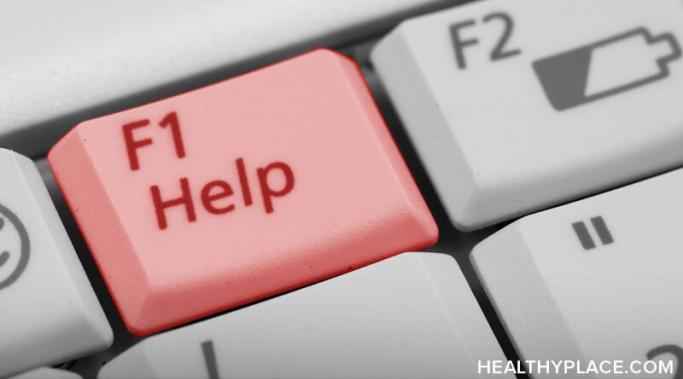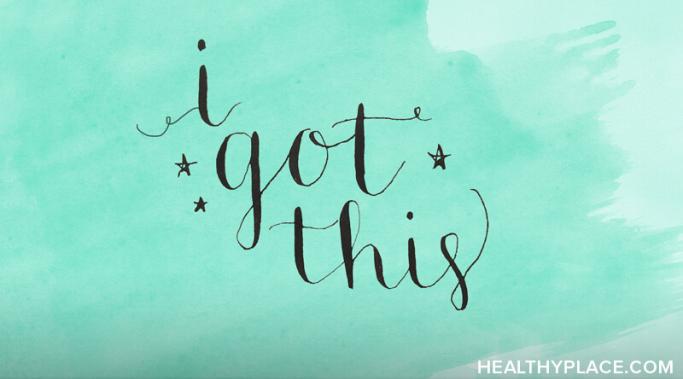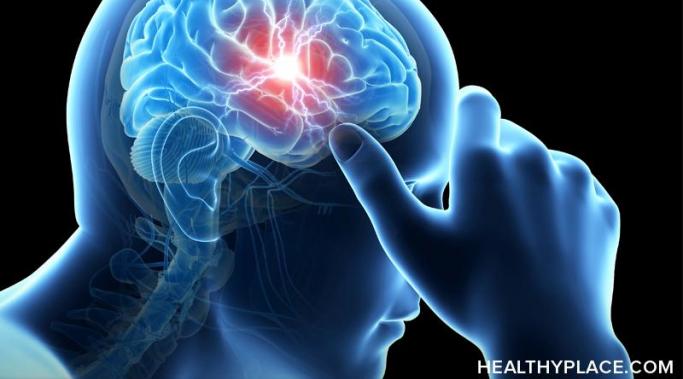Do you know how to show concern and support for your friend's emotional wellbeing? It can be more difficult when your friend lives with mental illness. If your friend with depression has engaged in self-destructive behaviors in the past, you might think that he or she is currently not okay and needs help. To learn about how to respond to your friend's feelings and when to show concern, read this article.
Getting Through Tough Times
Visualization and guided imagery can relieve the feeling of being stuck in your head that depression and anxiety can cause. It can be dark and scary there. By using visualization and guided imagery, you can temporarily escape all of your negative thoughts and stress at the present moment. To learn about how you can benefit from visualization and guided imagery, read this article.
Do you have a hard time believing in positive affirmations? For many people struggling with mental health conditions, the use of positive affirmations can be a great coping skill. This is because positive affirmations are used to increase self-compassion and self-esteem. Unfortunately, positive affirmations do not always help everyone. A major reason for this is that many people do not believe in their truth or power. To learn how to find belief in positive affirmations, read this article.
Now that we are nearly two weeks past the major holidays, many students have returned to school. For some, the transition from winter break to school mode might be very rough. To learn about how to ease back into school, read this article.
The first month of the new year can stir up different thoughts and emotions for everyone. Some people will feel really excited and confident about the new year. Others might have reservations about the new year or simply not care. No matter how you feel right now, it is very important to focus on mental health during the month of January. To learn about the importance of mental health and ways to work on it in January, read this article.
You probably think of winter break as a blissful, free, much-needed time to forget about school. Perhaps you binge-watch shows and movies on Netflix, make daily plans to hang out with friends, or enjoy a vacation somewhere warm. This is the picture-perfect winter break. While many students do enjoy these luxuries, this is not the case for everyone. To learn about the different emotions during winter break and tips to cope with them, read this article.
Loneliness during the holidays is something many people go through, though it may not feel that way if you're the one experiencing it. It can be especially hard if you typically struggle with feeling lonely, with the holidays being a time for people coming together. In this article, we'll discuss how to cope with feeling lonely during the holidays.
With only one month left until American New Year, you may notice New Year anxiety and/or depression. To learn about why some people might struggle with negative emotions and how they can cope, read this article.
November is Epilepsy Awareness Month. This is a very important topic that needs more awareness because it is more common than people realize. According to the article called “What is Epilepsy?” from the Epilepsy Foundation website, epilepsy is “the fourth most common neurological disorder and affects people of all ages.” Read this article to learn about how epilepsy is linked to mood disorders, ways those diagnosed with the condition can cope, and how you can support a loved one with epilepsy.
Explaining depression to friends and family isn't always easy. Many people seem to lump sadness and depression in the same group, but they are very different. Everyone experiences sadness from time to time, while not everyone goes through depression. For those without depression, understanding the difference can be confusing. In this article, I'll be sharing my take on explaining my depression with loved ones.









